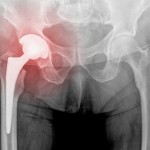
In 1982, the piece says, the company pulled millions of bottles off store shelves within days, and quickly introduced tamper-resistant packaging that became an industry standard.
“Its speed and candor during the Tylenol tragedy became the textbook case for handling corporate crises,” the piece says. “Now, it seems, J&J has thrown out that textbook.”
By contrast, according to the article, the company’s DePuy Orthopaedics division spent years ignoring and even actively suppressing evidence that that two of its hip implants were failing at high rates and leaving toxic metal debris in patients’ bodies. Although the company finally recalled the implants in 2010, surgeons had already put them in 93,000 patients.
In the first of more than 10,000 lawsuits involving the hip implants to go to trial, a Los Angeles jury recently awarded $8.3 million to one of the implant recipients.
Although the opinion piece notes that Johnson & Johnson isn’t the first health care company to repress bad news, it says: “But its shift away from more responsible practices is a notable violation of its own policies, which state that the company’s ‘first responsibility’ is ‘to the doctors, nurses and patients … who use our products and services.’”
You should consult with a doctor if you have any ongoing symptoms or health concerns from a DePuy hip implant. If you have significant injuries, you should also consult with a DePuy hip lawyer to discuss your legal rights.
See the story here:
